- Prof Judith Stephenson
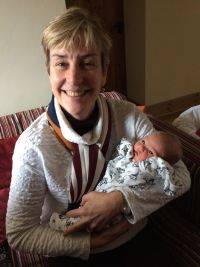
I joined UCL in 1990 as a research fellow in epidemiology and was appointed professor in 2005. I am currently interim Director of the IfWH, in a job-share with Professor Usha Menon.
My research focuses on improving use of contraception, how women plan and prepare for pregnancy and how early intervention can improve mother and child health across the life course. Public engagement is a core part of my research, for which I received the UCL prize for leadership in public engagement in 2012.
I am passionate about the broader determinants of women’s health, including gender equality in the workplace, and was keen to bring more job-sharing / job-splitting arrangements into senior posts at UCL for the benefit of all staff. Establishing a programme of events for International Women’s Day enabled us to address issues of gender inequality through drama, film and comedy which, attracting big audiences within and beyond UCL. The Provost has been an enthusiastic participant in these events and encouraged me to explore the potential for more job-sharing / splitting in senior roles.
I have always found the IfWH a very flexible and supportive place to work. When my two teenage step-children chose to live with our family, flexible working made it much easier to manage the demands of life at UCL and at home. The Future Leaders Programme was undoubtedly the best course I have done at UCL; it gave me the confidence to apply for and receive awards that I would not otherwise have even considered. I was particularly delighted to receive an award last year from Women-in-the-City for nurturing and developing other women’s careers.
- Ms Dilisha Patel
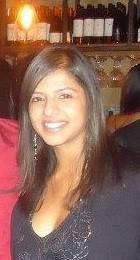
I was promoted from Research Assistant to Research Associate based on merit in March 2016. I was supported by my team and management once I began my application. I was awarded my promotion in title to Research Associate in March 2016 and my re-grade in August 2016.
Through the last 5 years in the Institute I have, with the support of my manager and research group, progressed from a volunteer, to a research assistant promoted to an associate and recently been successful to be accepted as a PhD candidate. I have been working towards a PhD for a while and during this time I have had incredible encouragement from my research group. Colleagues and senior staff at the Institute have given support to discuss career progression through their career advice surgeries and provided a platform to prepare and practise with mock interviews for opportunities.
I have gained a lot of experience and been involved in many of the Institute activities, from being a part of the International Women’s Day organising committee to co-chairing the Institute’s Communications team.
Recently I suffered from a back injury which severely limited my movement. Whilst I was at home recovering I was able to continue working from my “Home Office” and not fall behind or greatly impact my on-going projects. I felt fully supported by the Institute as I was able to continue working towards targets and deadlines without the pressure of needing to travel into work every day and focus on my recovery.
- Mr Ian Waller
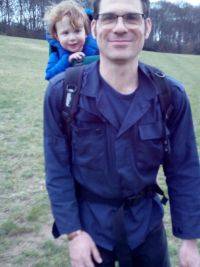
I joined UCL in April 2011 to lead the finance and research administration team at the Institute, which is the position I still hold.
My son Finch was born in July 2014. Up until a few months ago, my wife and I were able to share all of Finch’s childcare needs between us, without the requirement of childminders or nurseries. This was only possible because of the trust and support of the Institute Manager, Marcia Jacks. Marcia allowed me to work flexibly throughout the week. Working from home two days a week and in the office for three, working reduced hours during the day when at home and making these hours in the evenings and during the days I’m in the office. For this trust and support, I will be forever grateful! I cannot emphasize strongly enough the positive impact that this has had on my family. Not only has it enabled me to spend significant and irretrievable time with my son, as he developed through his first few months as a helpless baby into a toddler with serious attitude, but also providing Finch with what we felt to be the best possible start in life.
This flexible working has also had a huge impact on my whole family life. Not only enabling me to care for my son, but also enabling to do the school run with my 11 year old step-daughter, which has helped draw the whole family closer together, well on good days anyway!
- Ms Marcia Jacks
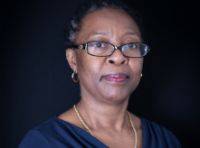
I joined UCL over 20 years ago as a Department Administrator and enjoyed a steady career progression before successfully applying for the post of Institute Manager at IfWH in 2009. Shortly after joining I introduced an Induction pack for all new staff which has improved year on year. Our Institute supports academic career progression but there has been less structure for professional services (PS) staff, this is changing in particular for those at a senior level but more needs to be done for PS staff on lower grades. Following my start at UCL, my own career progression was supported by my line managers when I was given the opportunity to complete a degree in Health Services Management. I did the diploma on a day release and went on to complete the Masters; for each level I reached I felt enabled and confident in my career to apply for or put myself forward for promotion. I am involved in work around Diversity and Equality and Co-Chair of the Race Equality Steering Group, I received a Provost Excellence Award (Equality) in 2015 as recognition of my work in this area.
Having a good work-life balance helped me to achieve my degree and care for my children. I have been blessed to have good line managers so even before there was an emphasis on good work-life balance I was able to negotiate coming into work after 9am so I could drop my children to school and have a shorter lunch break to make up the time. The culture in the departments I have worked meant I was able to request time off to attend school events. When joining IfWH, my youngest daughter was still in primary school and I worked between 9 and 4 so I could take her to school and pick her up from After School Club and then worked at home in the evenings to remain full-time. I now have a grandson and recently when my eldest daughter got a new job I was able to change my working hours to fit in with taking and picking him from school on certain days, just when I thought my school run days were over!
- Dr Suzy Buckley
I joined IfWH in 2010 as a senior research associate and was promoted to Lecturer in 2013. Once I was more secure in my career, I investigated the possibility of having baby by myself. I was only able to considered this option due to the strong support of my line manager and the knowledge that I could work flexibly after the baby was born. I gave birth to a baby boy (Joe) in February 2015 and took a full year off on maternity leave. The Institute manager was extremely helpful and arranged for my supervisory and teaching responsibilities to be taken on by a maternity leave cover appointment.
I kept in touch with my line manager and students regularly whilst I was away but did not feel under pressure to work excessively during that time so I could enjoy time with my new baby. I returned to work at 0.8 FTE and now juggle work with looking after a toddler. I found it a hard transition to return to work but was very supported at IfWH and offered some good advice on dealing with work/life balance issues by my HoD at my recent appraisal. I currently work alternate long and short weeks which means Joe is only in nursery for 2 days a week, with the rest of the childcare being covered by my parents. It’s a complicated arrangement but means that both Joe, I and the grandparents get the best of all worlds.
On my return to work I chose to become heavily involved with the Athena SWAN team at IfWH and joined the SAT to work on our gold application. Having been through the maternity leave and return to work process myself, I can identify areas for improvement and these have been included in our gold action plan.
- Prof Anna David
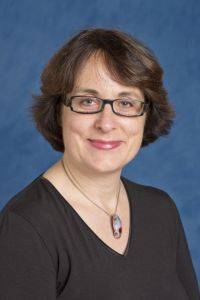
I joined UCL as a PhD student in Fetal Medicine in 2000 and have worked at the Institute for Women’s Health ever since. I live with my husband, a management consultant, and our children aged 9 and 12 years.
Committed to Obstetrics and Gynaecology from early in my medical school career, I worked as a junior doctor in the UK and Australia before deciding to pursue further research when, whilst working as an Obstetric Registrar, I found many unanswered questions in clinical practice. I recall being asked at my UCL PhD interview “Do you see yourself as a Professor?” and my team at IfWH have strongly encouraged me to pursue an academic clinical career ever since.
I feel that the IfWH has much more of a family atmosphere than my previous workplaces. I fell pregnant within 6 months of starting my PhD; on hearing the happy news my supervisor Professor Charles Rodeck’s response was “Great! How exciting! Let me know what we can do to help.” I returned to full-time PhD studies when my son was 7 months old, delaying my return to work by a few months after discussion with my supervisor, so that I could spend more time with my son. I took a further 6 months maternity leave in 2004 - on hearing of my second pregnancy my supervisor responded “About time!” Then when I had to take 4 months off sick in 2010, nobody batted an eyelid. I was able to stagger my return to work after sick leave, working from home half of the week so as to ease myself in, and my teaching responsibilities were covered.
I have worked flexibly throughout my time at IfWH and currently work from home one day a week, staying in touch with my team by Skype, phone and email. I feel that at the IfWH, as long as you are achieving, you can dictate what you put your efforts into and have control over your time, unlike the rigid working hours of clinical Obstetric practice. This flexibility in my academic work has allowed me to spend valuable time with my children as they grow up – I can take my daughter to her new school in the morning and get home to help my son with his homework – and I make up working time in the evenings when the children are asleep. Finding childcare has always been a challenge because my son has some learning difficulties, which makes change difficult for him; my flexible working means that my husband and I can share childcare and the children prefer having Mummy and Daddy around. My family organise our diaries using a shared Outlook calendar because flexible working takes an awful lot of planning.
I secured a Clinical Lecturer post in 2004 and was encouraged by the IfWH to apply for an NIHR Senior Clinical Lectureship which I was awarded in 2008, and for promotion to Reader in 2012. I currently work full-time (50% academic, 50% clinical). Having been closely mentored by Charles Rodeck and other colleagues at IfWH, I now hugely enjoy my role mentoring more junior clinical academics, supporting them in their academic career development as I myself was supported. I have recently been nominated to receive two UCL mentorship awards.
- Dr Pascale V Guillot
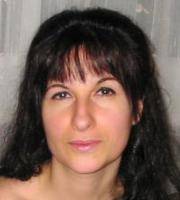
I joined the UCL Institute for Women’s Health in October 2013 as a non-clinical Senior Lecturer in Maternal and Fetal Medicine. I live in the countryside near Milton Keynes, 60 miles north of London with my husband, a Technical Analyst, our 6 year-old daughter, two Bengal cats, two turtles and many fish.
Passionate about research, I decided to become a scientist when, aged 7, my parents took me to an open day at the Pasteur Institute, a renowned Scientific Institute in Paris, France. Many years later, I did a double Masters Degree in Cognitive Psychology and Neuroscience, followed by a PhD in Neuroscience and a PhD thesis in Genetics. I then spent several years of training as a postdoctoral fellow abroad; first with Dr Mary F Lyon in Didcot UK, where I specialized in gene mapping, followed by studies on gene targeting at Harvard Medical School and Massachusetts Institute of Technology, and on gene regulation at the National Institute of Health in the US. I returned to the UK to study the biology of stem cells and became dedicated to developing stem cell-based treatments for pathologies affecting babies and infants.
I applied for a Lectureship position in December 2007, attending the job interview heavily pregnant. My husband and I were delighted to hear that I was appointed Lecturer in January, and I went on to give birth to my daughter a few days later. I immediately started work on my first grant application, which I wrote at home during my maternity leave and obtained a few months later. This allowed me to become the recipient of an award for Women in Science.
I wake up at 5:30 every day and start work with a strong coffee before waking up my daughter at 8am and getting her ready for school. I feel I am combining parenting and science in a very productive way. As my husband has very different working hours, I drive our daughter to school in the morning and collect her from after school club at 6pm, taking her to ice skating lessons twice a week. As many women academics at UCL, most of my grants and manuscripts are written at night, once everybody is in bed and the mind is clear. This is a time I especially like, when I can analyse the latest results from the lab and think of the next steps in research. I think the IfWH is strongly supportive of my ambitions in science. My team was the first one in 2013 to successfully chemically reprogram human cells to pluripotency, which found international acclaim. My career peaked upon discovering that this protocol also rejuvenated the cells so that old cells could function as younger cells again. These discoveries are very strongly supported by my Head of Department, Professor Donald Peebles, to develop a stem cell-based treatment for neonatal brain damage.
 Close
Close

